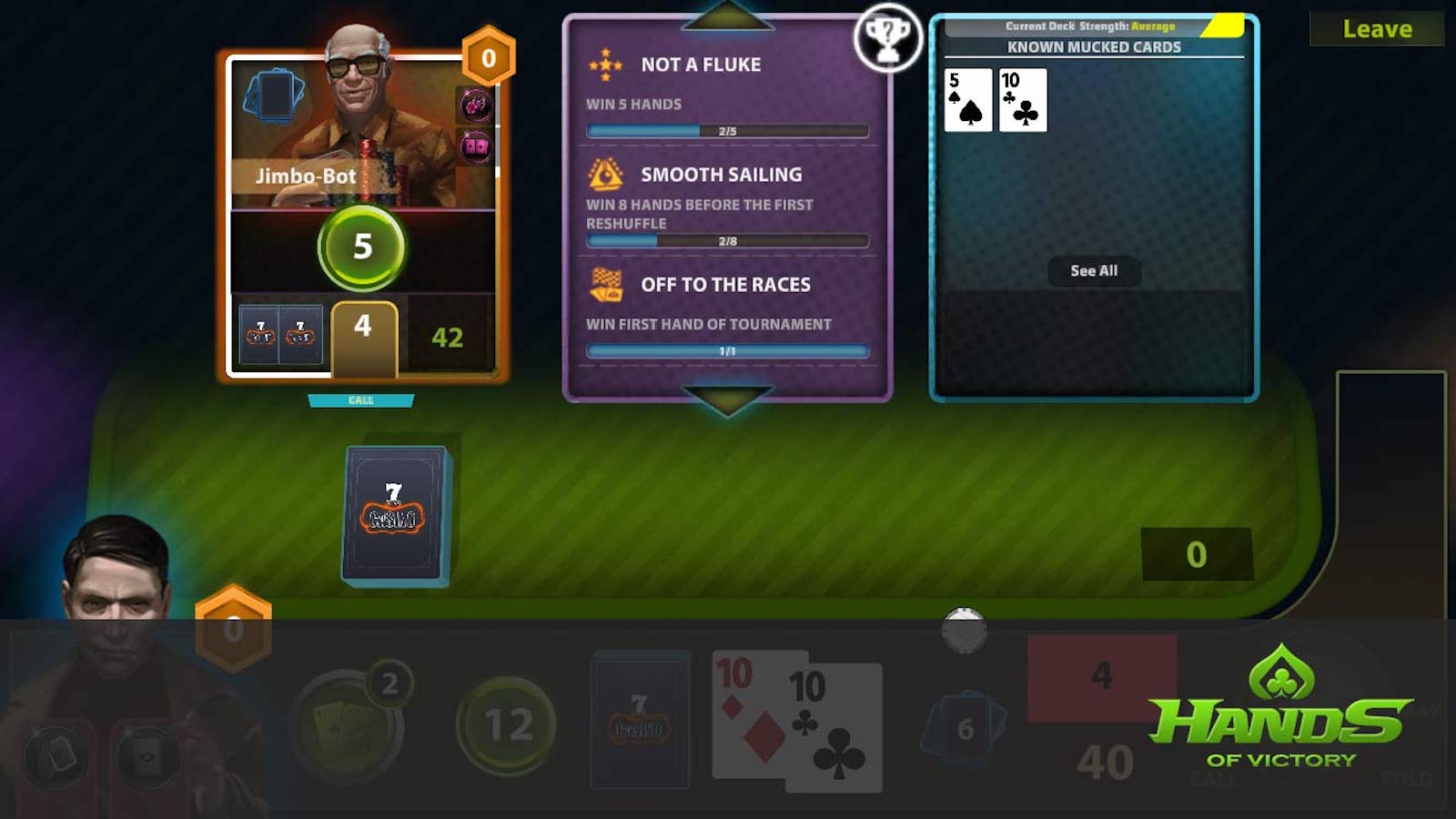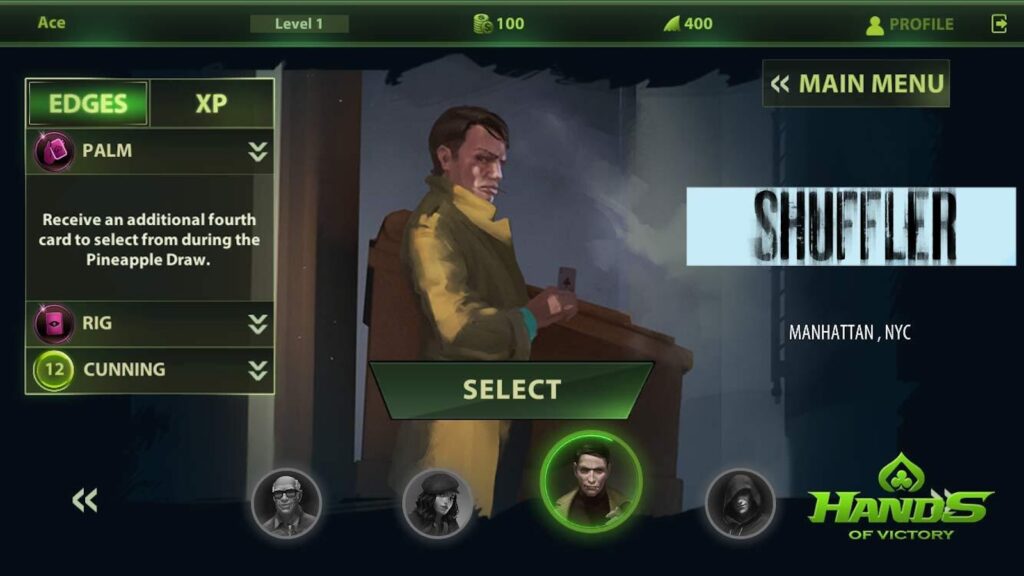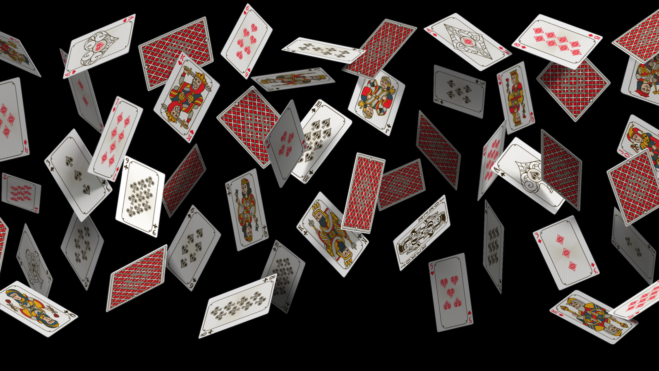Hands Of Victory’s Long Road To Launch Merges With Moment Of Innovation In Online Poker
‘Skill-based poker game’ in a testing phase before planned U.S. availability
6 min

Kim Lund, the CEO of Swedish game developer Aftermath Interactive, subscribes to a couple of philosophies commonly found on the sorts of motivational office adorned with soaring eagles and curious cats.
He’s very much a “practice makes perfect” guy. And he’s undoubtedly a “slow and steady wins the race” believer.
You could probably deduce these mindsets just from the knowledge that his innovative poker-themed game Hands of Victory has been in the works for roughly a decade and is just now seemingly getting close to being available for play in the U.S.
But the point is further hammered home by things Lund says about how he feels it’s best to introduce players to a real-money model.
“Building games across the entire monetization spectra — free-to-play, pay-to-practice, real-money skill gaming and gambling — makes sense in and of itself,” he told Casino Reports this week. “But it is also vital when developing innovative stuff simply because the real-money gaming environment is so naturally hostile to innovation.
“You can’t really release something totally new to gamblers and just be like, ‘Here, put your money on this.’ Our strategy allows us to use the lower-threshold models to spread our games so that once there is an opportunity to play them for money, players are somewhat familiar with them.”
And it’s not just waiting until a product is ready and rolling it out in phases that makes for the right timing. Sometimes, it’s the evolution of the environment that makes for the right timing. And on that front, patience may pay off with Hands of Victory.
Alternative gaming models — from “sweeps” to “skill” — have taken hold in 2024, and there are clear hints in recent months that operators and players are interested in twists on traditional poker. It’s a moment and an environment that looks awfully fertile for the arrival of Hands of Victory, which Aftermath bills as a “skill-based poker game.”
What is Hands of Victory?

Lund describes Aftermath as “a studio that builds games that bridge the gap between gambling and gaming.” Certainly, that’s a fitting description of Hands of Victory. It’s a form of poker, but one with assorted rule twists that incorporates elements of video games and esports.
At the outset of its conception, Lund asked himself this question: “How do you introduce new mechanics into a game that has stood the test of time forever”? Texas hold’em was, and is, a proven commodity. And while Lund insists that “poker never went away,” it certainly did recede from the mainstream — setting the state for an eventual resurgence.
Hands of Victory is a difficult game to explain in just a few sentences or even a few paragraphs, but it starts with the core idea of a poker sit & go played with two, three, or four players. The outcome, however, is not just based on who has all the chips at the end, as it is with a traditional poker tournament. Each round is also scored, with points awarded if you’re making good folds, if you’re getting the chips in as a favorite, and so forth. Skillful play is rewarded, at least to an extent, even when luck doesn’t go a competitor’s way.
Another key element is playable characters. Lund noted there are four in the game currently, four more that have been developed, and others in the works. This is where the video game feel comes in — the characters have different poker attributes, and utilizing their strengths and weaknesses effectively becomes a skill developed over time.
One other twist on the hold’em that people know is that each player’s hole cards are drawn from their own individual deck — not a shared deck that gets reshuffled after every hand. So the luck factor is reduced in that, for example, each player will get dealt four aces over the course of 26 hands. Also, participants who can keep track of what cards their opponents have previously played will have better information about their possible holdings.
Lund said the game is in a “testing phase.” It’s been integrated into the competitive gaming platform known as Challengermode, where tournaments are currently available, but not to U.S.-based players.
A pivot point in online poker’s evolution
Aftermath Interactive doesn’t have a specific timeline for a full launch that includes the U.S., noting only for now that a new round of testing is planned for next week. If indeed it’s ready soon, it will be coming along at an interesting time for online poker world in the States.
Legalization has been a slog — it’s been 11 years since Nevada, New Jersey, and Delaware launched iPoker, and only five more states have legalized since while a mere two of those have active sites. But those creaky wheels are beginning to turn again. Interstate compacts are gathering steam (Pennsylvania just joined in). New sites are emerging, such as BetRivers Poker (in collaboration with respected pro Phil Galfond).
And perhaps most significantly, DraftKings recently introduced a peer-to-peer Texas hold’em game housed within its casino app. It’s called Electric Poker, and it’s not exactly an innovation — it’s almost identical to WSOP Online’s Blast Poker, which in turn was mostly lifted from PokerStars’ Spin & Go game — but it will seem like an innovation to most users, and is quickly gathering steam. (Anecdotally, in Pennsylvania where both Electric Poker and Spin & Gos are available, three-seat Electric Poker offerings consistently fill faster than Spin & Gos do.)
“I viewed [the arrival of Electric Poker] as a win for poker as a whole,” Lund said. “Obviously, the legacy sites aren’t going away. No one is going to decouple PokerStars into 10 different tiny poker variations.
“But I think the future will see poker move away from the idea of these giant platforms that offer players infinite opportunities and stake levels, and move toward more specified experiences that are distributed similar to how slots are distributed. There’s no reason why you should think it’s a great idea to outsource the creative development of slots to a bunch of boutique developers all over the world, but poker games, those are things you are going to develop yourself in-house. I think there will be boutique developers creating unique poker-based experiences that they then distribute just like slots are distributed, and operators then pick them up from there.”
Lawyers, cards, and money
If indeed Hands of Victory gains popularity in the U.S., there are two obvious questions: How will the game be monetized, and are there concerns about its legality?
On the latter front, attorney Joe Grad of Hensel Grad, an advisory firm working with Aftermath in the U.S., expressed full confidence that the game is on the right side of the law.
“If you look at the U.S. legal cases that have reviewed the game of poker as a game of chance versus skill, the courts have usually have come down on the side that it’s a game of chance, while recognizing the tremendous skill components with poker,” Grad said. “The courts have been unwilling to recognize long-term mathematical advantage as a form of skill, basically saying, if luck can intervene in the short term, it’s gambling. So with poker, you have to change that paradigm. You have to create multiple rounds, you have to create enhanced skill elements, and you have to reward players for skillful play, not just the outcome.”
Based on the full assortment of rules governing the game, Aftermath Interactive and Hensel Grad are confident that Hands of Victory falls not under the designation of “gambling,” but rather qualifies as “skill gaming.”
Monetization remains something of an open question. “All avenues are open to us,” Lund said. There will be a free-to-play option, but the model also includes a pay-to-practice option, where there are costs associated with upgrading character traits, learning the game, and gaining advantages. There will be subscription options, and Lund said there will be variations and customizations of the characters available for a fee.
“Free-to-play games can be hard to monetize,” Lund acknowledges. “But since our game is fundamentally gambling-based, we can offer it as a real-money game.”
In the end, Lund is confident in the legality of the game, he’s confident in the money-making potential of the game, and he’s confident there’s an audience for it, even if it runs counter to a lot of what’s been happening in poker of late.
“The approach for a while was to make the game of poker dumber, so that the most skilled players couldn’t take so much money out of the system,” Lund said. “This is the big battle I have with this industry right now. People have this idea that gamblers, or those that end up being sports bettors, have the attention span of a goldfish. Nothing can be complicated. Nothing can be hard.
“And they don’t consider the fact that, this gamer generation, they are off playing insanely complicated PC games or console games for hours upon end, proving their tolerance towards complexity is off the charts. And their willingness to dedicate time and money to games that they love is sky high. Gambling is doing itself a disfavor by not trying to take more of that entertainment spend and by not doing something these players can more deeply engage with.”
That sounds like precisely the sort of thing you’d expect a subscriber to the “slow and steady” approach to say. Hands of Victory is coming — soon, perhaps — and somewhere at the intersections of gambling, skill gaming, poker, and esports, it figures to find an audience.





